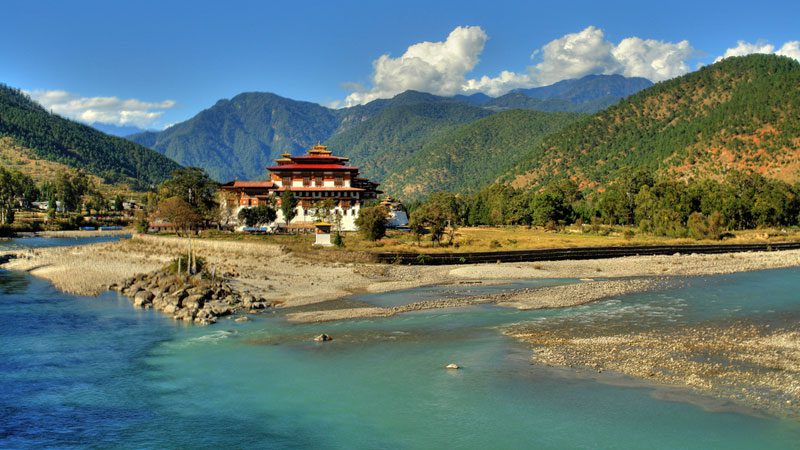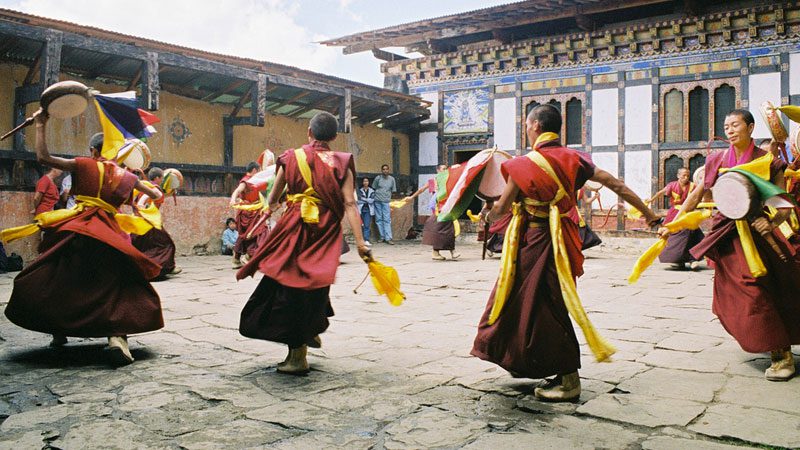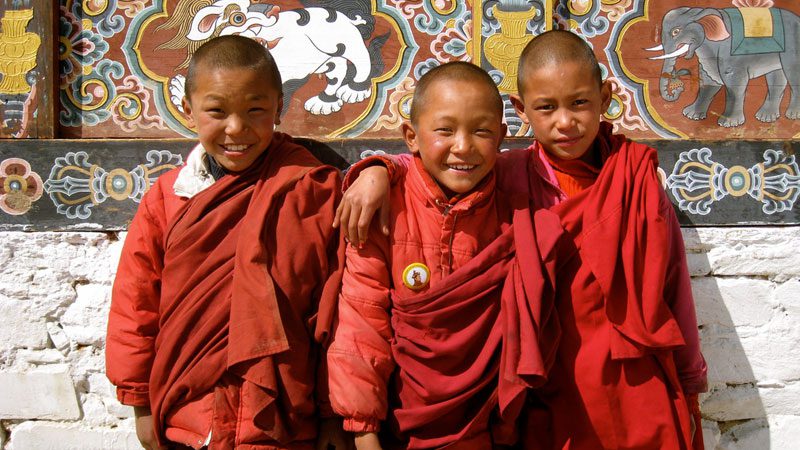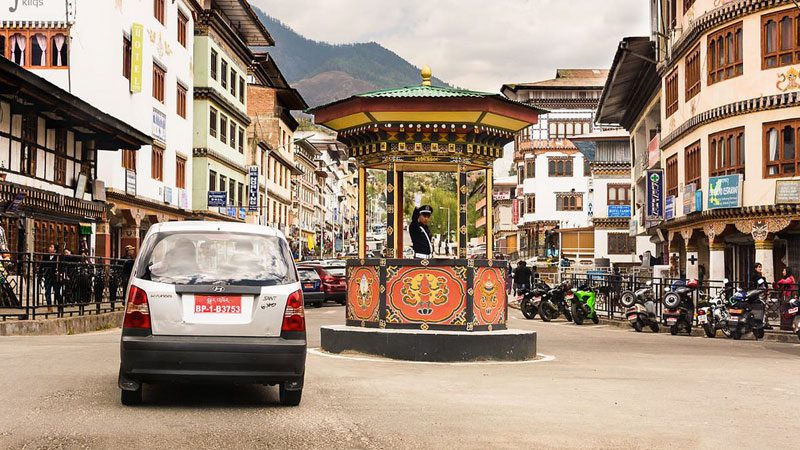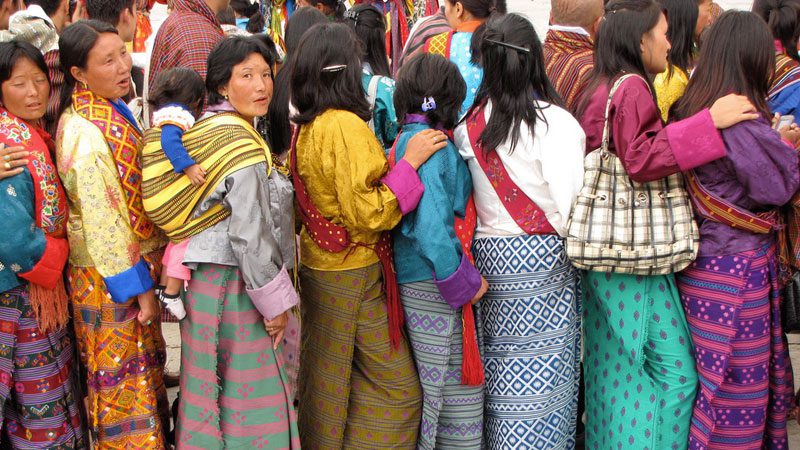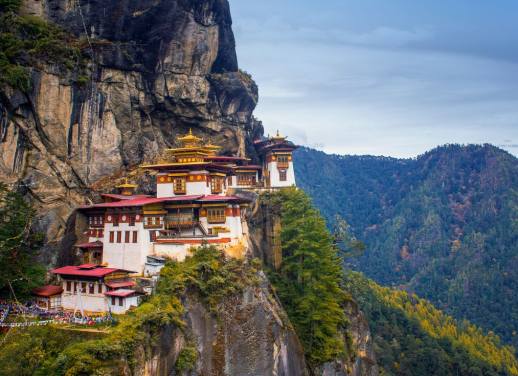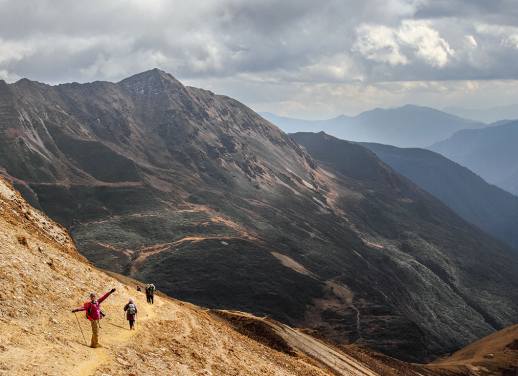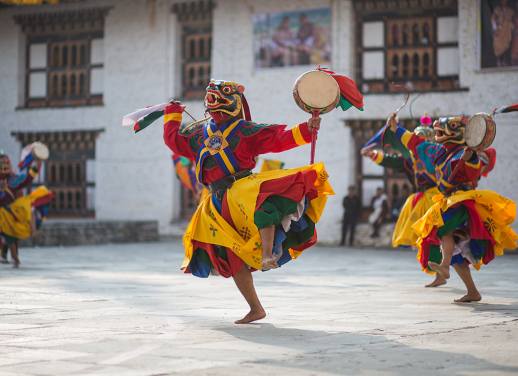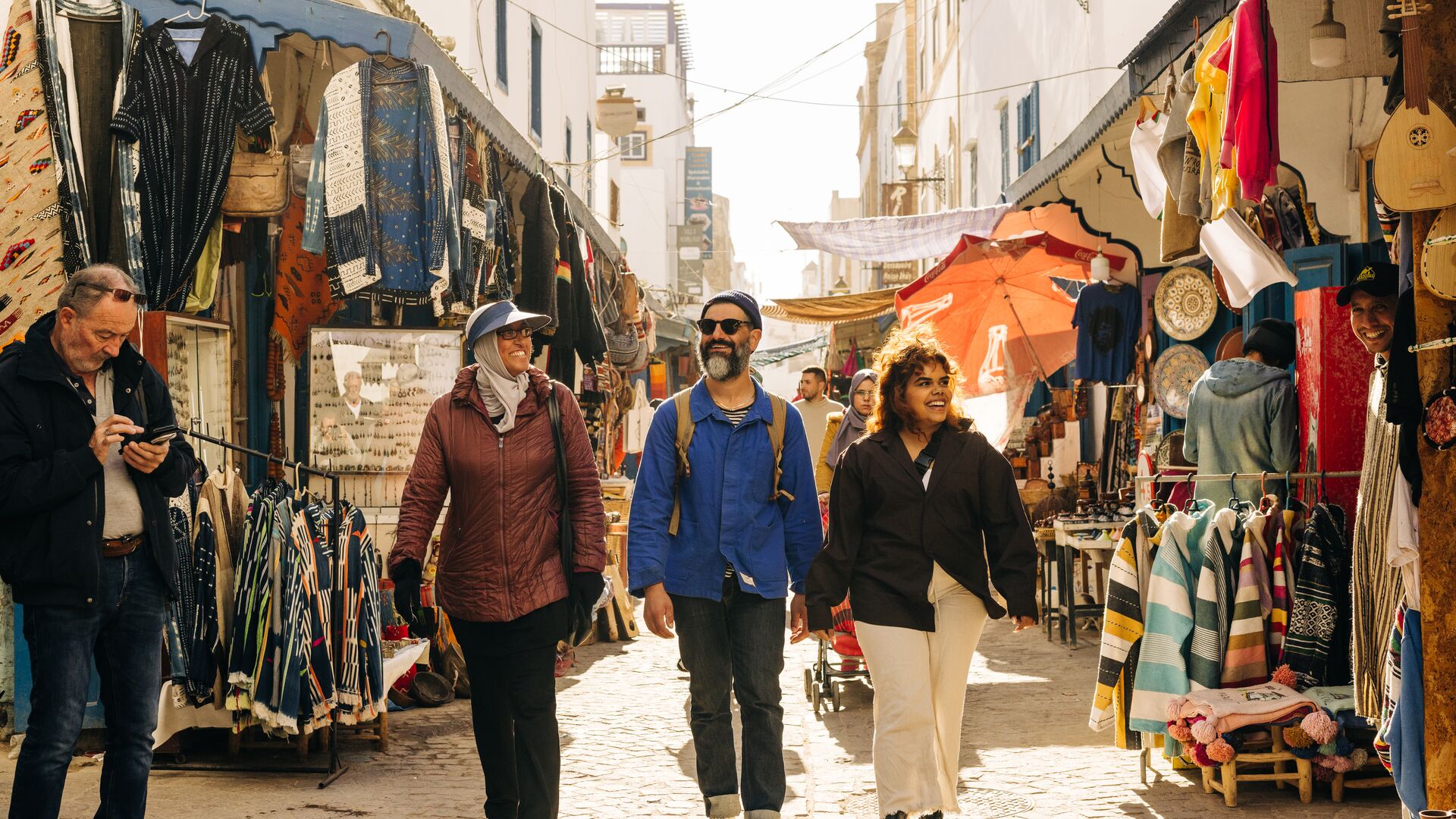In case you need a reminder that wealth does not necessarily equate to happiness, meet Bhutan… one of the happiest little vegemites on Earth.
Dressed in a traditional knee length ‘gho’, Bhutan – if personified – would be the oriental friend you wish you always had. Bhutan would be interesting to talk to, with a charismatic charm you could never quite put your finger on. Bhutan would be kind, humble and sensitive, and incredibly attuned to his emotion self. Bhutan would live self-sufficiently (but not in a preachy way) and his brows would rise every time you chose automobile as your first choice of transport (you know… over those two strong limbs that connect with your feet to the ground).
Sadly, Bhutan is not a person. But luckily, Bhutan does exist (and its in the form of an entire nation cushioned between China and the northeastern tip of India) *insert praise/celebratory emoji* Here are six reasons why it might just change the way you live:
1. Spirituality
Bhutan is a Buddhist kingdom of the Himalayas. ‘Mayahana’ (tantric) Buddhism is Bhutan’s official religion, and is practiced by about 75% of its entire population. Buddhist monasteries dot this nation and, while aesthetically exquisite in nature, they also serve as a reminder that the Bhutanese are a people, incredibly reverent towards each other, as well their land and animals.
While Buddhism is Bhutan’s ‘go-to’ religion, Bhutan also has historical ties to several forms of animistic beliefs that are still held by many today.
2. Gross National Happiness
While most countries measure their success in the form of GDP (gross domestic product) Bhutan measures its national prosperity in the form of ‘Gross National Happiness’.
‘Gross National Happiness’ is a term first coined by His Majesty the Fourth King of Bhutan in the 1970s. It is a concept that implies wellbeing should take preference over material growth. Bhutanese policies have been set up through the ‘GNH’ index, based on equitable social development, cultural preservation, conservation of the environment and good governance.
3. Environmental Conservation
The Bhutanese are known for living in harmony with their environment. Bhutan is one of the last remaining biodiversity hotspots in the world, with most of its natural environment still pristine and intact. It is also the only country whose largest export is renewable energy.
Environmental sustainability is Bhutan’s primary objective with around 72% of Bhutanese land still covered by natural forest. The government has enacted a law that shall maintain at least 60% of its forest cover for all time. 60% of its land mass already falls under protected areas.
4. Light tourist footfall
Bhutan was opened to tourists in 1974. Since then, the Bhutanese government has remained acutely cautious of the environmental damage that tourist footfall can have. To maintain a largely unspoiled landscape, the Bhutanese government has restricted the level of touristic activity that is undertaken.
Minimum tariffs
Bhutan believes in ‘high value, low impact’ tourism. This sees a daily minimum tariff charged to tourists (all who need to be travelling on a pre-planned, pre-paid guided tour).
In high season, the daily minimum is roughly $250 USD, however this fee covers a package that includes all internal taxes and charges, including royalty, accommodation, all meals, services of licensed guides, internal transport etc.
These fees go towards providing free healthcare and free education to citizens, as well as towards alleviating poverty, and preserving the environment.
5. Life moves at a slower pace
In Bhutan, real life thrives. Its Buddhist values and unmaterialistic lifestyle leaves its people feeling more connected to one another and the Earth. Life moves at a slower pace in Bhutan. Even the speed limit of vehicles is on average, 20km per hour (if that’s any indication that they’re in no hurry for life to pass by quickly). Plus the capital Thimpu is one of only two in the world that doesn’t have traffic lights. They trialled one set of lights, but locals prefer the dramatic arm gestures of the city’s friendly traffic cops.
6. Little Crime
Bhutan has a very low crime rate. This may be linked to its nation’s strong ties with Buddhism and its focus on the wellbeing and happiness of its people.
Incidents of petty crime however, are occasional, and crime rates have risen slightly since the influx of foreign workers and its growing contact with foreign cultures. However, all in all, the Bhutanese culture experience very little violent crime rates and thefts.
7. Gender Equality *feminists cheer*
Over the past few decades, Bhutan as improved gender inequalities within its society and is now one of the most gender equal countries in Asia.
While there are still gaps between women and men in relation to education, employment and decision-making, Bhutan has taken great care in outlining gender-responsive planning and budgeting as a means to support women’s value within society.
Feature image c/o Marina & Enrique, Flickr

